Peshawar massacre: Pakistan replies with 'weaponised' teaching
- Published
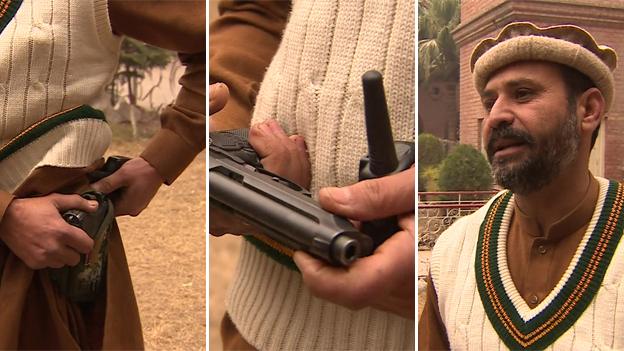
Mohammed Iqbal says he will "go down fighting" if the Taliban attack his school
Following last month's Taliban school massacre, Pakistan is allowing teachers to carry weapons. The BBC's Shahzeb Jillani visits a school in Peshawar where staff are now serving as armed guards.
On a cloudy morning in January, Mohammed Iqbal is conducting a rare physical fitness class inside the courtyard of Government Higher Secondary School Number 1. The sprawling campus of the all-boys school is one of the biggest and oldest government institutions in Peshawar.
The school has a large playground for sports activities. But it's not been much in use since the Taliban massacre at the nearby Army Public School, which killed about 150 people, mostly children.
Until that atrocity, Mr Iqbal's main job was to plan sports activities for his pupils. He now doubles as the school's chief security officer, with a gun tucked under his long shirt.
"It's my personal gun which I have started carrying with me to school," he says as he pulls out a 9mm Beretta pistol.
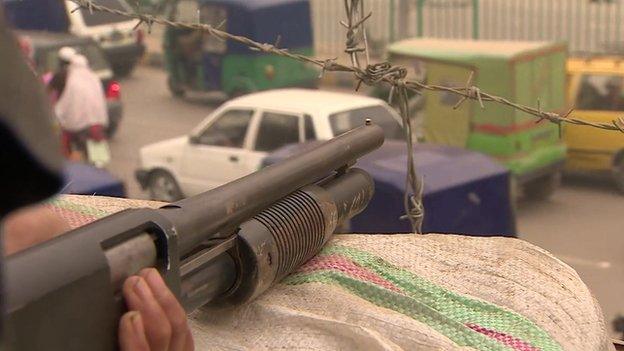
Government Higher Secondary School Number 1 is now protected by substantial firepower
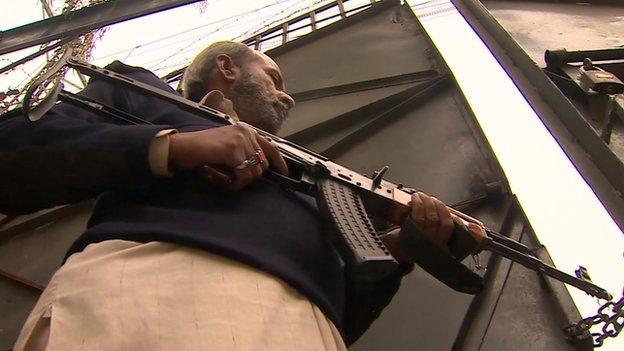
Some of the school's staff have been redeployed to guard its entrance
"Instead of this gun we should have a pen in our hand" - One PE teacher is now also an armed guard
The school has recently acquired weapons and armed some of its staff. One of them now serves as a sniper on the rooftop. Others have been redeployed to guard the school entrance.
"A number of teachers were killed in the Army School attack. I want to make sure that if that ever happens here, we go down fighting," he says.
Does he find it hard to carry a gun as a teacher?
"We want to deliver knowledge, not weaponise our young people. But circumstances have compelled us to do this for our own safety," he says.
That's because the management accepts that police simply cannot protect tens of thousands of schools across the province. And unlike the elite private establishments, government-run schools lack funds to hire armed security guards. They often have no option but to make their own security arrangements.
'Security is not our job'
The 16 December school massacre sent shockwaves through the country and beyond. Schools across Pakistan were subsequently closed. When they reopened after an extended winter break of nearly a month, anxious parents debated whether or not to send their children back.
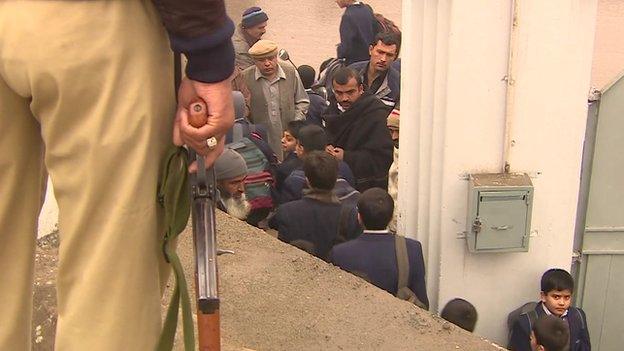
The plan has sparked intense debate around Pakistan about how children can be protected
The authorities called for a series of new measures to enhance security. These included: raising boundary walls, topping them with barbed wire, installing CCTV cameras and setting up security gates.
More controversially, the government said it would allow teachers to carry weapons by issuing arms licences.
"The idea is to enable them to engage the attackers until help arrives," provincial information minister Mushtaq Ghani said at the time.
Since then, criticism of the proposal has grown. "Our job is teaching, not carrying a gun," says Malik Khalid Khan, a head teacher and president of the teachers' union in Khyber Pakhtunkhwa province. "We are not prepared to become security guards."
Paradigm shift?
Last week, the provincial government was forced to backpedal on some of its earlier announcements.
"We are not ordering teachers to carry arms," Atif Khan, provincial education minister, told the BBC. "What we have discussed is that the government would allow licensed guns if teachers and parents asked for it."
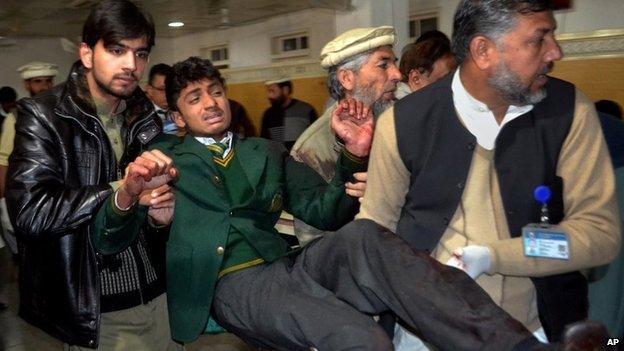
About 150 people were killed in the attack and many more injured
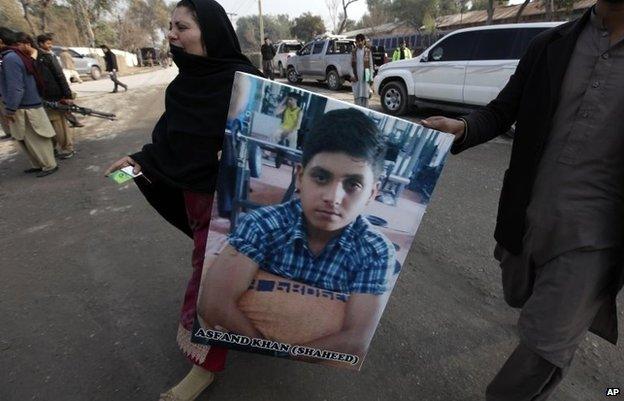
Parents of the killed children hold regular memorials and protests
Officials point out that having a gun or carrying it is not a big deal in north-west Pakistan as it is considered a part of Pashtun tribal culture. Others believe promoting a gun culture in schools is not the way to fight violence and militancy.
For that to happen, many in Pakistan believe the powerful military will have to take on Islamist militants of all shades - whether they are Taliban targeting Pakistanis or jihadists focused on India and Afghanistan.
But that requires a massive paradigm shift in Pakistan's national security perceptions. Some believe that after the Peshawar school massacre, that belated change in thinking is already happening. Others well versed in Pakistan's complicated military-militant nexus are still not so sure.